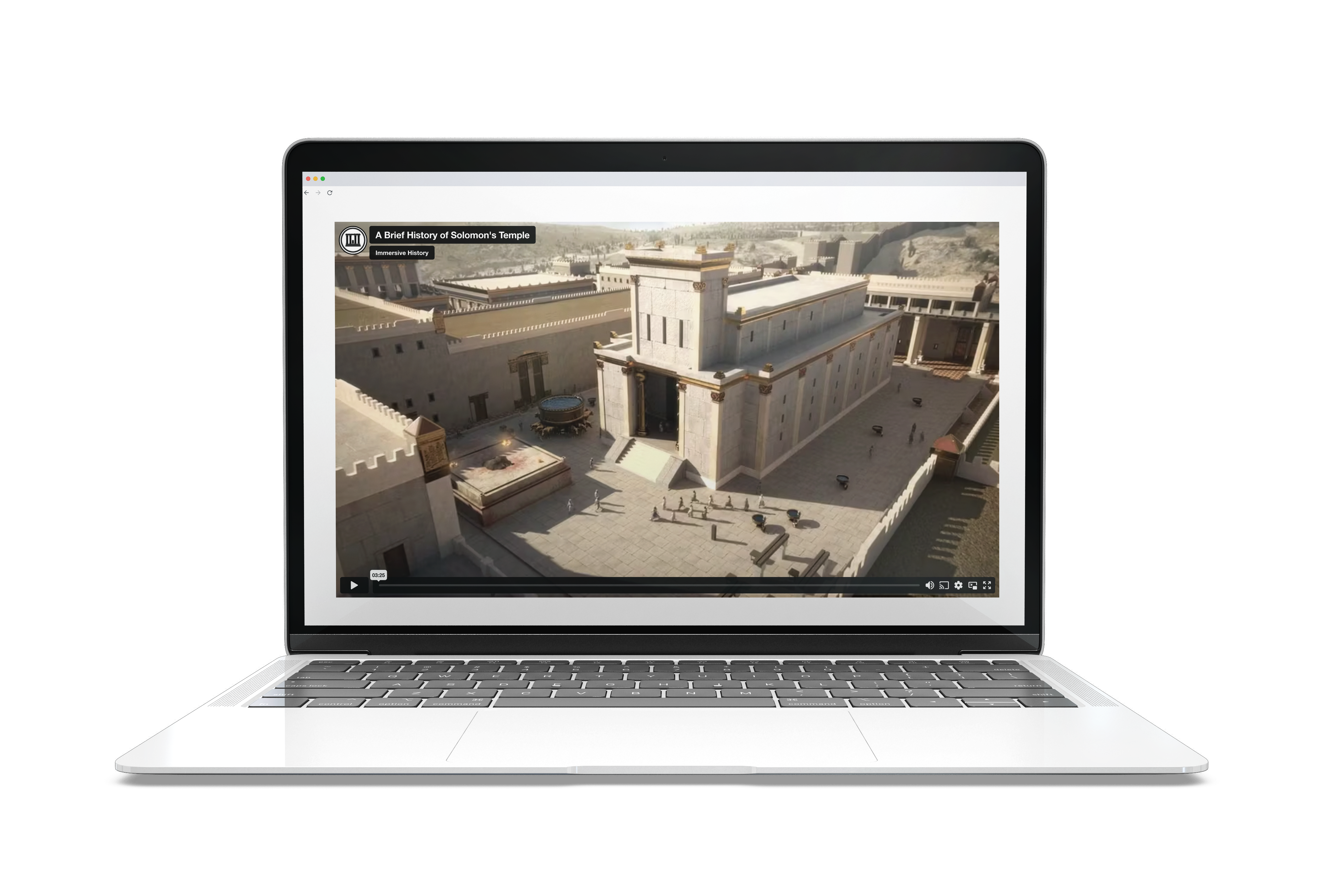Why Study the Bible?
- Whether you agree or disagree with its message, the Bible is the most widely read book of all time and has influenced much of the world as we know it.
- Biblical concepts of love, faith, liberty, justice, hope, and unity have been a central culture-shaping text of American civilization.
- The Bible has influenced art, music, theater, and science.
- Even public discourse and debate has been framed with what can be called a moral grammar.
- So why wouldn’t we want the Bible studied alongside classical literature, art, history, science and mathematics, and the founding documents of America?

Engaging & Interactive
Fully online multimedia course that adapts to varying schedules and learning styles
The Study of Religion in the Social Studies Curriculum
A Position Statement of National Council for the Social Studies
Approved and published 2021
The academic study of religion is an essential part of any social studies education, and the National Council for the Social Studies strongly supports its inclusion in the curriculum. The study of religion is a critical lens for understanding human existence in its broader cultural context, including its relation to economic, political, and social institutions, as well as the impact of religion on history, arts, geography, language, and literature.
constitutional COMPLIANCE
“Public schools may not provide religious instruction, but they may teach about religion. For example, philosophical questions concerning religion, the history of religion, comparative religion, the Bible (or other religious teachings) as literature, and the role of religion in the history of the United States and other countries all are permissible public school subjects. Similarly, it is permissible to consider religious influences on philosophy, art, music, literature, and social studies.”
(The U.S. Department of Education – Guidance on Constitutionally Protected Prayer and Religious Expression in Public Elementary and Secondary Schools – January 16, 2020)
constitutional Imprint
“The founders referenced the Bible in their political discourse more than any other texts, including the words of the great political philosophers John Locke and Baron de Montesquieu. Many patriots -including those who doubted the Bible’s divine origins – saw in Scripture guidance and even political and legal models – such as representative government and separation of powers – for the establishment of a new political society.”
Daniel L Dreisbach, Professor School of Public Affairs, American University, Washington DC
Civic Impact
”At every milestone of our national history the Bible has informed public discourse and debate by framing discussion and argument with what can be called a moral grammar. Whether the moment’s issue was resistance to Great Britain’s tax policies, the treatment of Native American peoples, slavery, women’s suffrage, immigration, civil rights, war, or peace, the Bible has been referenced for guidance.” “The Good Book has been a central culture-shaping text of the American civilization. American values, ideals, and institutions have been informed, and often consciously formed, by its fundamental ethical message of love and other attendant virtues including faith, liberty, justice, hope, and unity. These are the values that have historically united Americans.”
Alan R. Crippen II, Executive Director, Faith and Liberty Initiative
Literature Legacy
Numerous writers quote or reference the Bible’s themes and characters. Understanding these allusions helps students understand some of the most consequential works of literature.
- William Shakeseare
- Dante Alighieri
- Charles Dickens
- Fyodor Dostoevsky
- Ernest Hemmingway

Artistic Legacy
Numerous visual artists, and musicians have incorporated Bible references into their works. It is important for students to not only learn about these timeless artistic works but to understand their context.
- Michelangelo
- Leonardo De Vinci
- Rembrandt
- Handel
- Beethoven
So why wouldn’t we want the Bible studied alongside classical literature, art, history, science and mathematics, and the founding documents of America?
Teacher-Facilitated
Viewpoint-neutral courses facilitated by certified teachers who provide content help and feedback
